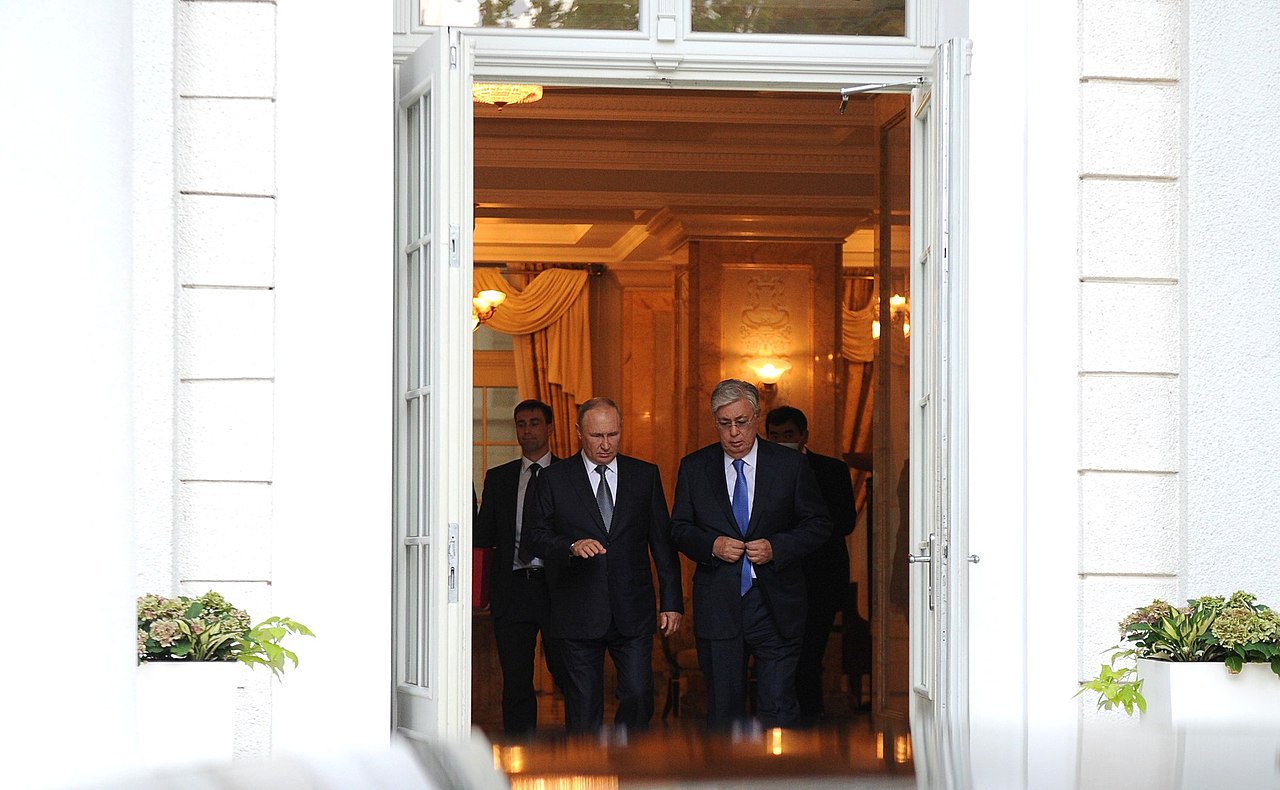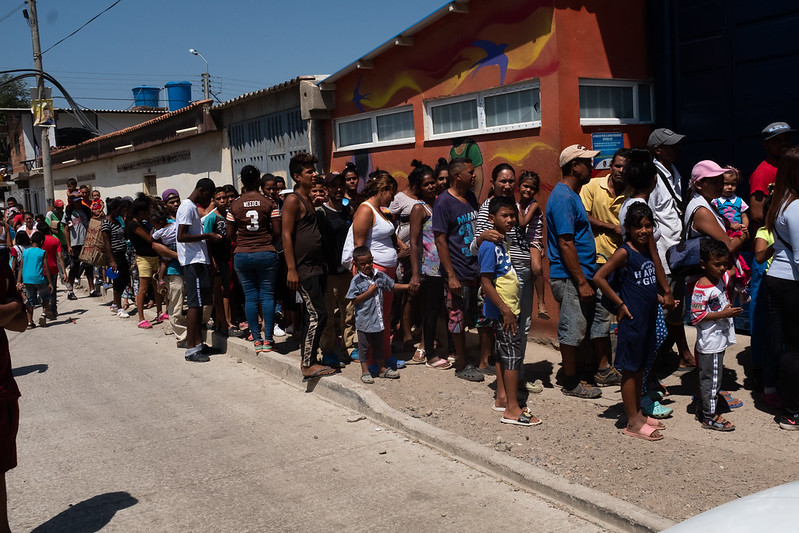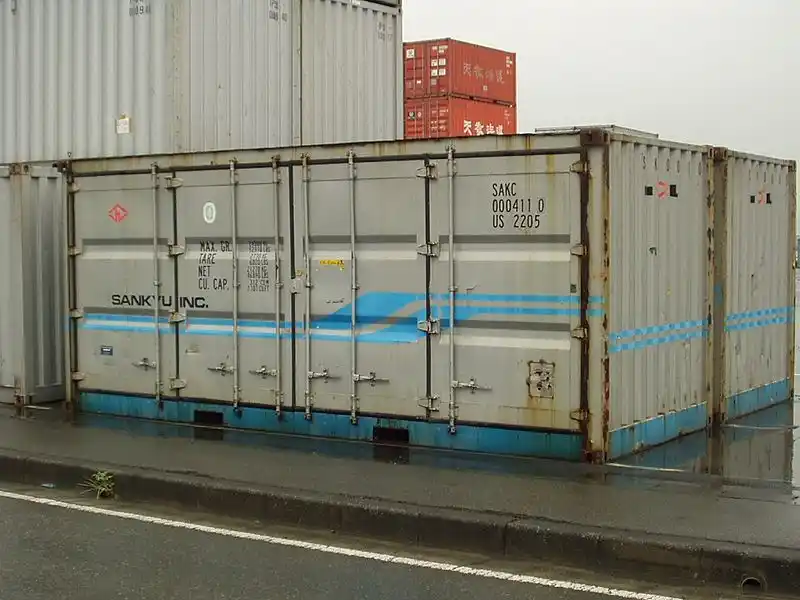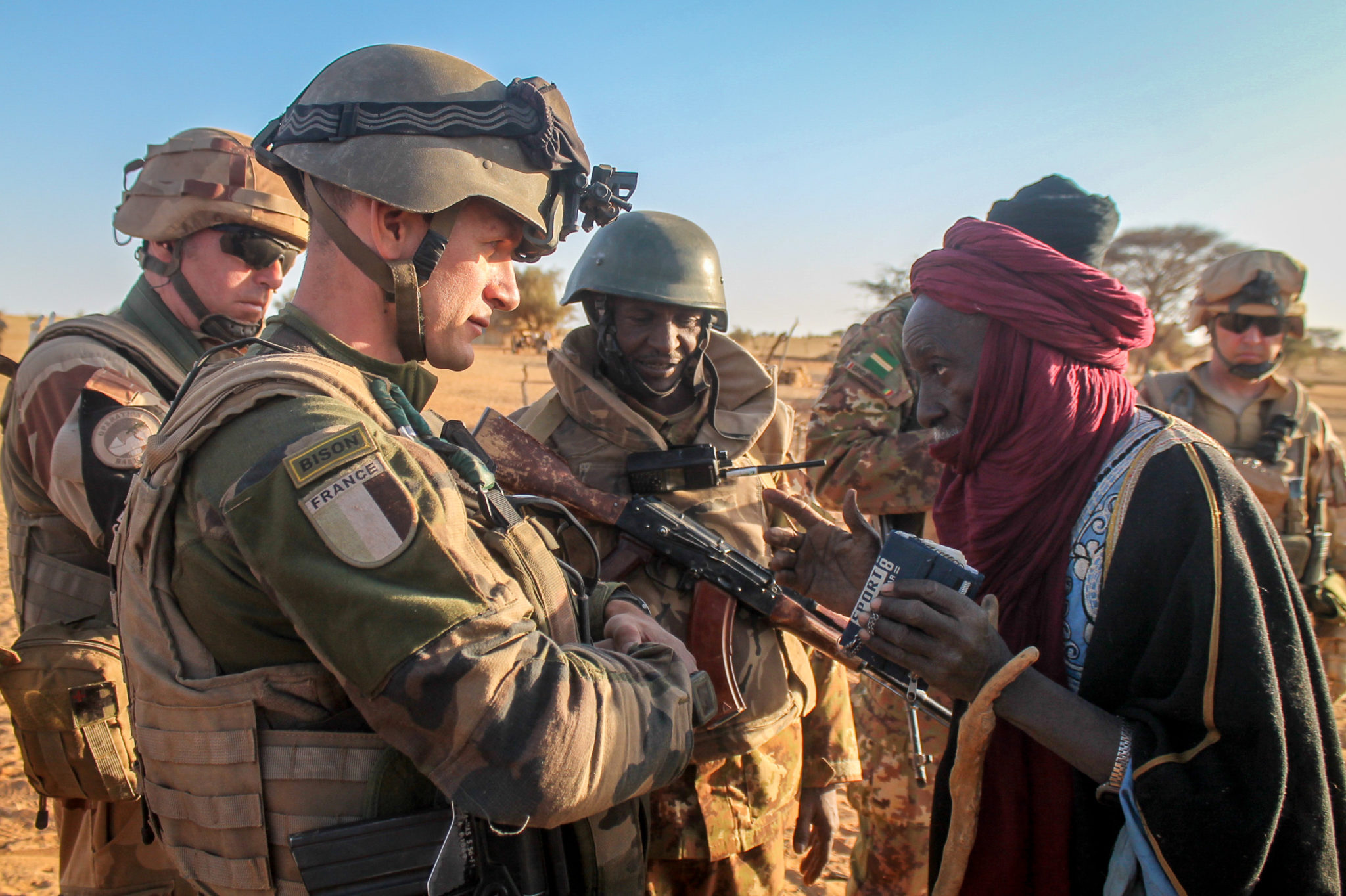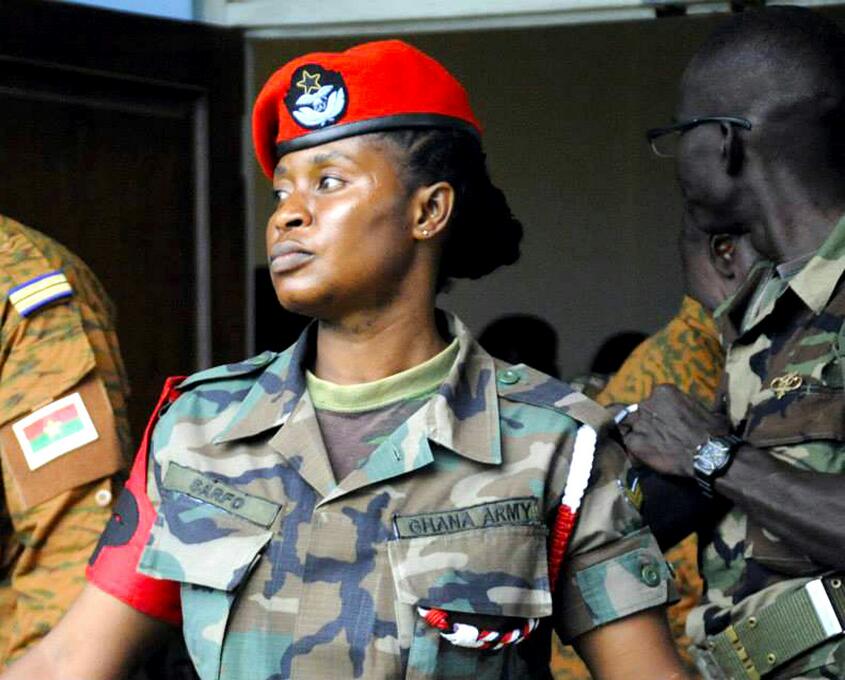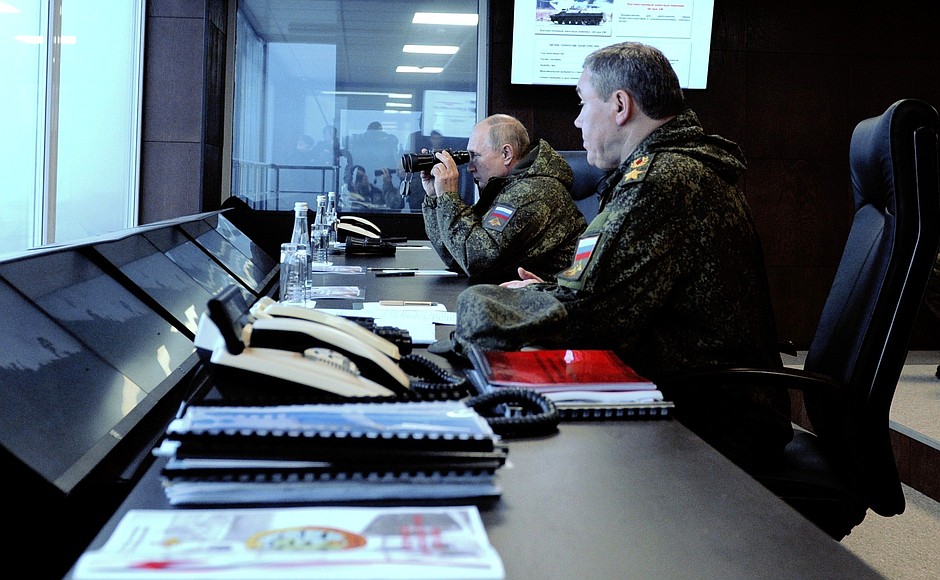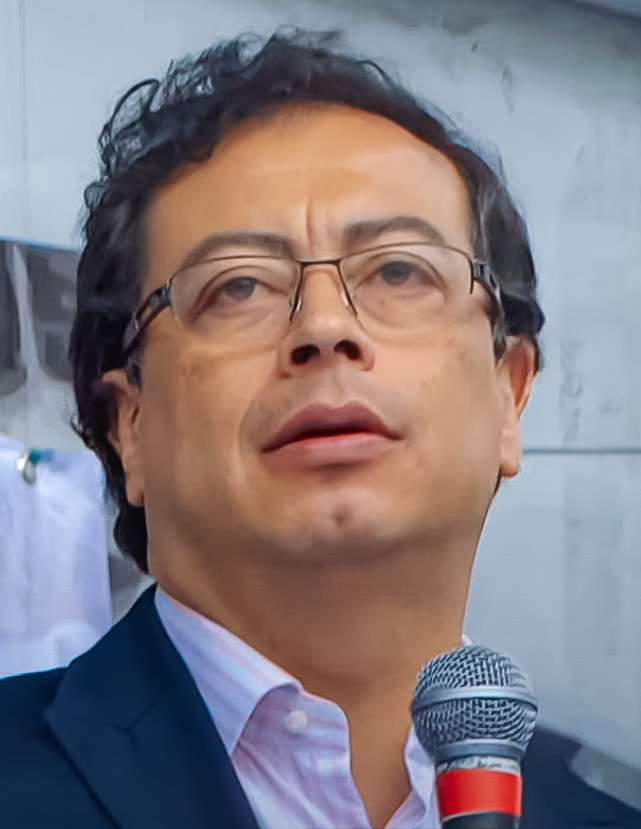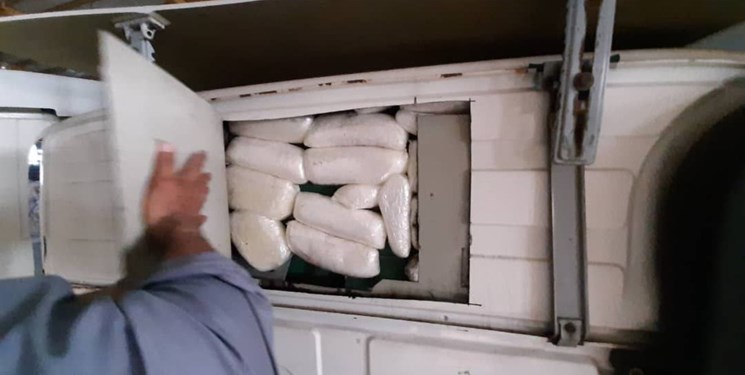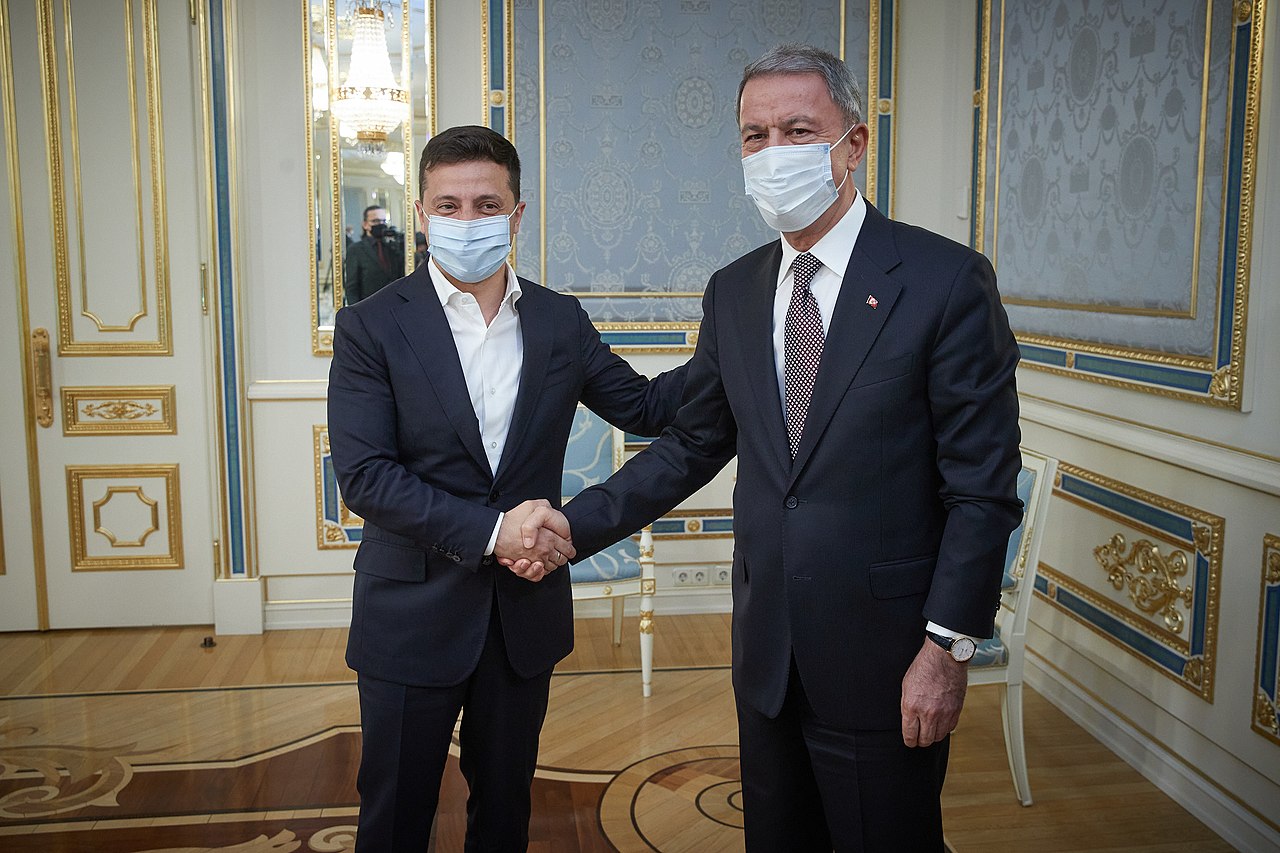
President of Ukraine Volodymyr Zelenskyy meets with Minister of National Defense Minister of Turkey Hulusi Akar, Kyiv, Ukraine.
An armed force with a high degree of maneuver capability and a high communication capability can conduct very effective maneuvers regardless of how much bigger its enemy force may be.
Various Turkish news programs consider Turkey’s observations from the Russian invasion of Ukraine. The accompanying excerpts from one such televised debate summarize Turkey’s military, technical, and geopolitical takeaways from the war. The excerpts are from a program which aired on Nokta TV24, a Turkish independent news and analysis channel, featuring a discussion between former Turkish Ambassador Fatih Ceylan, the Turkish Permanent Representative to NATO from 2013 to 2018, and one of Turkey’s top defense and security experts, Arda Mevlütoğlu. The show was posted on YouTube.
To begin, Mevlütoğlu notes the most important lesson from a military and technological standpoint has been that an armed force (Ukraine) can conduct very effective maneuvers against a much larger enemy force (Russia). He points to the importance of Ukraine’s capable strike systems, maneuver forces, and particularly communication systems. Citing reports of Russia having to resort to commercial GPS systems because of its Glonass GPS system being jammed, he concludes that attention to electronic and cyberwarfare are also extremely important. Mevlütoğlu also points to the importance of the psychological dimensions of the war, noting that Ukraine’s successful and effective psychological campaign has enabled it to maintain the support of the European public, which has been critical for ensuring those countries’ continued support. As such, he claims that diplomatic, cultural, and psychological factors are just as important as military defense technologies, which can even be a tool of foreign policy. He points to the success of Turkish-made Bayraktar TB2 drones in Ukraine, and how the successes of these drones have increased Turkey’s profile there [1]. Geopolitically, Mevlütoğlu assesses that Russia will end up deeply weakened in terms of potential and capability. He argues that such a Russia will have an asymmetric relationship with China, where China will have the upper hand in their trade relationship, especially in energy. In this sense, he sees China coming out as one of the beneficiaries of this war. On the other hand, he claims that the United States has consolidated its political-military influence in Eastern Europe, which he says will likely limit China’s influence in Europe and access to the Atlantic.
Sources:
“İnsansız Kara – Hava ve Deniz Aracı Üretiminde Neredeyiz? | S-400’lerin İkinci Partisi Gelir Mi? Fatih Ceylan Arda Mevlütoğlu ile (Where are we in the Production of Unmanned Land – Air and Sea Vehicles? | Would a Second Batch of S-400’s Come? Fatih Ceylan speaks with Arda Mevlütoğlu),” Nokta TV24 via YouTube (a Turkish independent news and analysis channel), 1 September 2022. https://www.youtube.com/watch?v=ZT3eIYmT84Q&list=WL&index=63
Q: As you know, there’s been a huge inflection point in the global security environment in February 2022 with Russia’s invasion of Ukraine… We’ve left behind six months of this war. In these six months, what lessons should we learn as far as military operations and deterrence based on how the war is going? What strategies, visions, concepts, and doctrines do we need to develop for the future?
A: Six months of the Russia-Ukraine war has given us the opportunity to make some very important political, military, and strategic and observations. From the Turkish point of view, both from a military and technological standpoint, some of the most important ones are [as follows]: An armed force with a high degree of maneuver capability and a high communication capability can conduct very effective maneuvers regardless of how much bigger its enemy force may be. A well-educated, well-equipped force with units with good communication systems and highly [capable] strike systems can be very effective. Communication technology is the most important here… There is open-source information that says that the Starlink communication system provided by Elon Musk has been instrumental for Ukraine in the battlefield… We have reports that there have been important GPS jamming attempts in the region, especially against Russia’s Glonass system. And in fact, there are reports that Russia has had to resort to commercial GPS systems as a result. So we can conclude that there is huge competition in electronic and cyber war. We can’t see this directly, we can only observe the outcomes of this. The war has shown us that electronic and cyberwars, as well as strike and maneuver forces are extremely important.
There is also the psychological dimension. Morale and psychological support is very important. Ukraine has been conducting a very successful, very effective psychological war. It has not only consolidated its public support in the West, but increased it. It has obtained moral superiority and retained this. So, however right you may be in your war, if you can’t defend your thesis in the international arena or find international support, it is that difficult to continue your fight… Of course in this case there can be no explanation for attacking a sovereign country.
So [the war has shown us that] it’s not just military fighting [that matters]; the fight in the diplomatic, cultural, psychological dimensions are also very important. In fact, military defense is not just a military or industrial thing, its also an element of foreign policy. We don’t need to repeat the success that Turkish-made Bayraktar TB2s have had for Ukraine, they are even conducting crowdfunding activities to buy more.
Q: There’s a new reality now… When we look at the military strategies of the U.S., China and Russia and the related doctrines they are developing, we see a serious global strategic competition that is here to stay for many years. How will the balance of powers play out?
A: This is an open-ended process. In this competition between the U.S., China and Russia, my view is that, regardless of how this war ends, Russia will end up deeply weaked. It will continue to be a superpower and a big power, but it will be seriously damaged and tarnished in terms of potential and capability. Such a Russia will have an asymmetric relationship with China such that China will have an advantage, particularly in terms of energy imports and advanced technologies and systems. … So I think China may come out benefiting from this [war]. I don’t know if it will result in a conflict with Taiwan- I think it’s very difficult and I hope not. Taiwan’s TSMC company is very important for global microchip production, so a war in that region could lead to a serious global crisis… But it will be tense. In fact we see that the U.S. has focused its interest in that area. China’s relations with the U.S. and the West may be both competitive and cooperative at the same time… Finally, the U.S. has consolidated its military-political influence in Eastern Europe. So China’s influence in Europe and access to the Atlantic may become more limited.
Notes:
[1] See also Karen Kaya, “Turkish-Made Bayraktar TB2 Drones Play Important Role in Ukraine,” OE Watch, Issue 6, 2022.
Image Information:
Image: President of Ukraine Volodymyr Zelenskyy meets with Minister of National Defense Minister of Turkey Hulusi Akar, Kyiv, Ukraine.
Source: https://commons.wikimedia.org/wiki/File:Volodymyr_Zelensky_and_Hulusi_Akar.jpg
Attribution: CC BY 4.0

